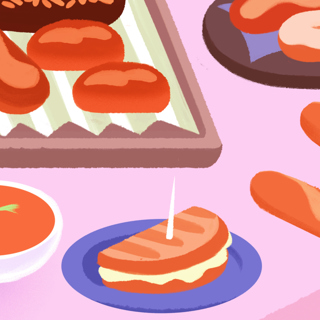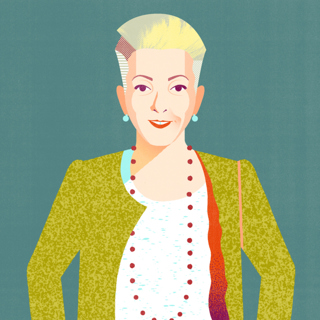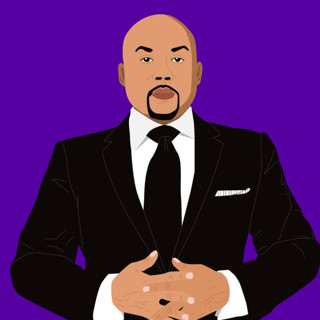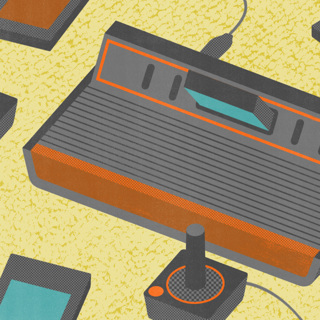
Stripe: Patrick and John Collison
Brothers Patrick and John Collison founded and sold their first company before they turned 20. They created software to help eBay users manage inventory online, which set them on a path to help make e-commerce frictionless. Today, John and Patrick are the founders of Stripe, a software company that uses just a few lines of code to power the payment system of companies like Lyft, Warby Parker and Target. Plus, for our postscript "How You Built That," how Robert Armstrong turned his grandma's cookie recipe into "G Mommas," buttery, bite-sized pecan-chocolate-chip cookies that are now sold in stores across the Southeast U.S. See Privacy Policy at https://art19.com/privacy and California Privacy Notice at https://art19.com/privacy#do-not-sell-my-info.
7 Maj 201841min

Panera Bread/Au Bon Pain: Ron Shaich
In the early 1980s, Ron Shaich bought a small, struggling Boston bakery chain called Au Bon Pain, and built it out to 250 locations nationwide. Ron then saw an opportunity to build something even bigger: Panera Bread. It was the start of "fast casual" – a new kind of eating experience, between fast food and restaurant dining. Today, Panera Bread has over 2,000 stores, and $5 billion in annual sales. Plus, for our postscript "How You Built That," how Tyson Walters got so tired of his St. Bernard shedding everywhere that he created the Shed Defender, a zip-up body suit for dogs that captures loose hair. See Privacy Policy at https://art19.com/privacy and California Privacy Notice at https://art19.com/privacy#do-not-sell-my-info.
30 Apr 201841min

Dermalogica: Jane Wurwand (2016)
Jane Wurwand moved to Los Angeles with a suitcase and a beauty school diploma. She started what would become Dermalogica, an international beauty empire that set the standard for skin care. PLUS in our postscript "How You Built That," we check back with Nick Gilson for an update on his company, Gilson Snowboards, a snowboard & ski company based in Pennsylvania. (Original broadcast date: October 24, 2016) See Privacy Policy at https://art19.com/privacy and California Privacy Notice at https://art19.com/privacy#do-not-sell-my-info.
23 Apr 201840min

Wayfair: Niraj Shah & Steve Conine
After selling their first small business and shuttering their second, former college roommates Niraj Shah and Steve Conine thought about getting "normal" jobs. But in the early 2000s, they stumbled across an unexpected trend: people were buying furniture online to get a wider selection. Within a few years, Niraj and Steve launched 250 different websites, selling everything from barstools to birdhouses. Eventually, they consolidated these sites into one giant brand: Wayfair. The company now carries more than 10 million items for home and last year brought in more than $4 billion in sales. Plus, for our postscript "How You Built That," how Carin Luna-Ostaseski fell in love with scotch and became the first American woman to create a Scotch whisky company. See Privacy Policy at https://art19.com/privacy and California Privacy Notice at https://art19.com/privacy#do-not-sell-my-info.
16 Apr 201846min

FUBU: Daymond John
Daymond John grew up during the 1980s in the heart of hip hop culture: Hollis, Queens. In his early 20s, he was working at Red Lobster and trying to figure out how to start a business. Eventually, he stumbled on the idea of making clothes for fans of rap music. In 1992, he started FUBU (For Us By Us) and began selling hats outside of a local mall. Three years later, FUBU was bringing in $350 million in sales. Today, he's a judge on Shark Tank, and a motivational speaker and author. Plus, for our postscript "How You Built That", how Len Testa created an app that uses real-time data to help people avoid long lines at theme parks. See Privacy Policy at https://art19.com/privacy and California Privacy Notice at https://art19.com/privacy#do-not-sell-my-info.
9 Apr 201851min

Stitch Fix: Katrina Lake
In 2010, Katrina Lake recruited 20 friends for an experiment: she wanted to see if she could choose clothes for them that accurately matched their style and personality. That idea sparked Stitch Fix, an online personal shopping service that aims to take the guesswork out of shopping. Today, it has over two million customers and brings in nearly a billion dollars in annual revenue. Plus, for our postscript "How You Built That", how Brian Sonia-Wallace built "Rent Poet" — a poem-on-demand service for weddings, corporate gatherings, and other events. See Privacy Policy at https://art19.com/privacy and California Privacy Notice at https://art19.com/privacy#do-not-sell-my-info.
2 Apr 201850min

Atari & Chuck E. Cheese's: Nolan Bushnell (2017)
Before he turned 40, Nolan Bushnell founded two brands that permanently shaped the way Americans amuse themselves: the iconic video game system Atari, and the frenetic family restaurant Chuck E. Cheese's. PLUS in our postscript "How You Built That," an update on H2OPS, a non-alcoholic take on craft-brewed – a fragrant sparkling water made with hops. (Original broadcast date: February 27, 2017) See Privacy Policy at https://art19.com/privacy and California Privacy Notice at https://art19.com/privacy#do-not-sell-my-info.
26 Mars 201849min

LÄRABAR: Lara Merriken
In 2000, Lara Merriken was 32, recently divorced, and without a job when she decided to make energy bars by mixing cherries, dates, and almonds in her Cuisinart. Eventually, she perfected the recipe and launched her company: LÄRABAR. After just two years, the company was bringing in millions in revenue. In 2008, she sold to General Mills, but stayed on to help grow LÄRABAR into one of the biggest energy bar brands in the U.S. Plus, for our postscript "How You Built That", how two brothers from Guinea, West Africa founded a company that makes Ginjan, a spicy-sweet juice from their boyhood, which mixes pineapple and ginger. See Privacy Policy at https://art19.com/privacy and California Privacy Notice at https://art19.com/privacy#do-not-sell-my-info.
19 Mars 201853min






















